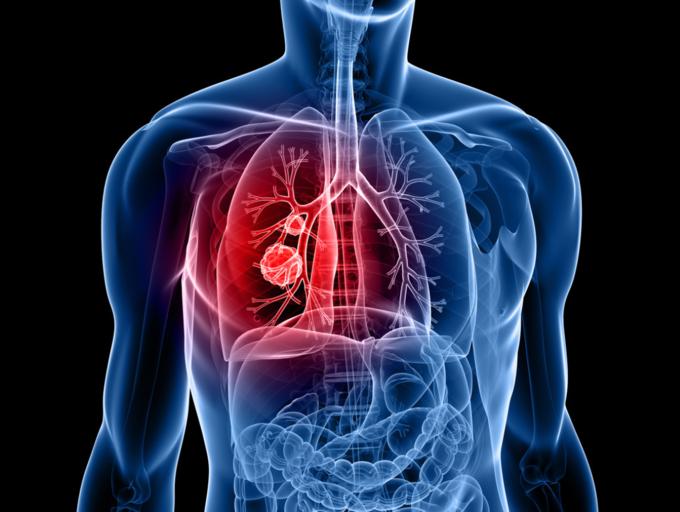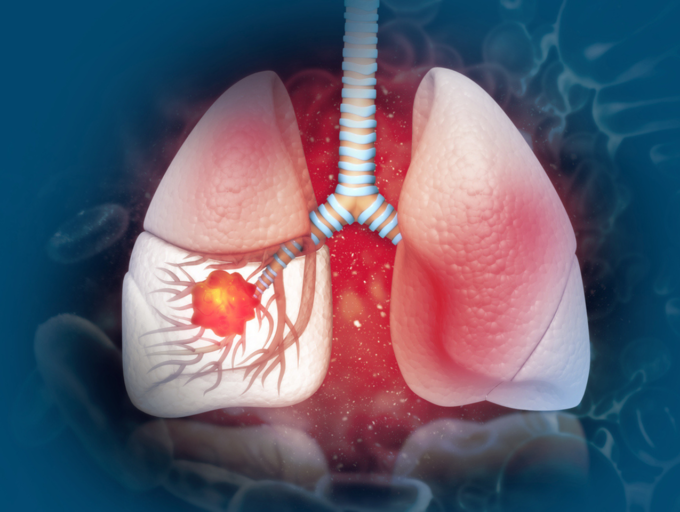World Lung Cancer Day: Early symptoms of the cancer to watch out for
World Lung Cancer Day is observed on August 1

World Lung Cancer Day is observed on August 1 every year. This initiative of the American Lung Association's LUNG FORCE creates awareness on the diseases and highlights the importance of early detection through lung cancer screening.
In India, lung cancer accounts for 5.9% of all cancers and 8.1% of all cancer-related deaths. As per a report, the projected cancer burden in India is expected to increase to 29.8 million in 2025.
Early detection of cancer is indispensable to human health. One should be aware of the tiniest abnormality in the health so that one can get timely medical assistance and the disease's progress is checked before it does any harm to the body.
What is lung cancer?
When cancer, or abnormal growth and multiplication of cells occur in the lungs, it is referred to as lung cancer. It is considered to be one of the leading causes of cancer deaths worldwide.
Lungs are the breathing organs of the body. They filter the air we breathe in and supply oxygen to the bloodstream. Apart from this, lungs help in bringing the air to the right body temperature. These twin organs also aid the body's sense of smell.
What are the symptoms of lung cancer?

"Lung cancer affects both genders and may present with a myriad of symptoms. Though primarily seen in smokers, 10 to 15 percent of lung cancers occur in non smokers as well," says a Consultant Interventional Pulmonology and Sleep Medicine.
On the early signs of the debilitating disease, a Dr. says typically patients with lung cancer present with persistent cough or cough with occasional streaks of blood, chest pain, difficulty in breathing, loss of weight and appetite.
"However few patients may also present with varied symptoms like hoarseness of voice, fatigue, bony pain, heaviness in chest or with symptoms related to the organ the cancer has metastasized," the expert adds.
The need for timely medical checkup
Cancer is often dubbed as a silent killer. The symptoms of this disease do not appear until it's too late. Therefore doctors and health experts always advise people to go for regular medical checkup so that a disease can be caught in its early stage. Treating a disease in its initial stage ensures proper results, can be life saving and will give more years to the person to survive.
On lung cancer symptoms, Dr Balasubramanian says majority of the cases are symptomatic, but few patients may be asymptomatic and are diagnosed incidentally on chest X ray or CT scan.
What causes lung cancer?
Lung cancers can either be small cell and non-small cell. It may either begin in the lungs of the individual or else can be due to metastases where the cancer cells spread from one organ to another.
One of the leading causes of lung cancer is cigarette smoking. Lung cancer is also caused when an individual is exposed to harmful substances like asbestos for a longer duration of time. Exposure to harmful chemicals at home and at work also makes an individual prone to lung cancer.
People who have a history of lung cancer running in the family are also likely to develop the disease.
Who is at risk of having lung cancer?
People who smoke are at the highest risk of getting cancer in the lungs.
The prevalence of lung cancer among non-smokers is also seen. The secondhand smokers, or the ones who passively smoke through the air released by the smokers comprise 10-15% of those who get lung cancer.
Is diet responsible for lung cancer?

Excessive use of beta-carotene supplements increases the risk of developing lung cancer especially in those who smoke or are exposed to asbestos.
"One study of 29,000 male smokers found an 18% increase in lung cancer in the group receiving 20 mg of beta-carotene a day for 5 to 8 years. Another study of 18,000 people found 28% more lung cancers in people with a history of smoking and/or asbestos exposure. These people took 30 mg of beta-carotene in addition to 25,000 Units of retinol (a form of vitamin A) a day for 4 years," reads a report by MayoClinic.
However, having adequate amounts of beta-carotene from the natural food is helpful for the body.
The US Centers for Disease Control and Prevention (US CDC) also says that people who drink water that contains arsenic and radon are also at higher risk of developing this life threatening disease.